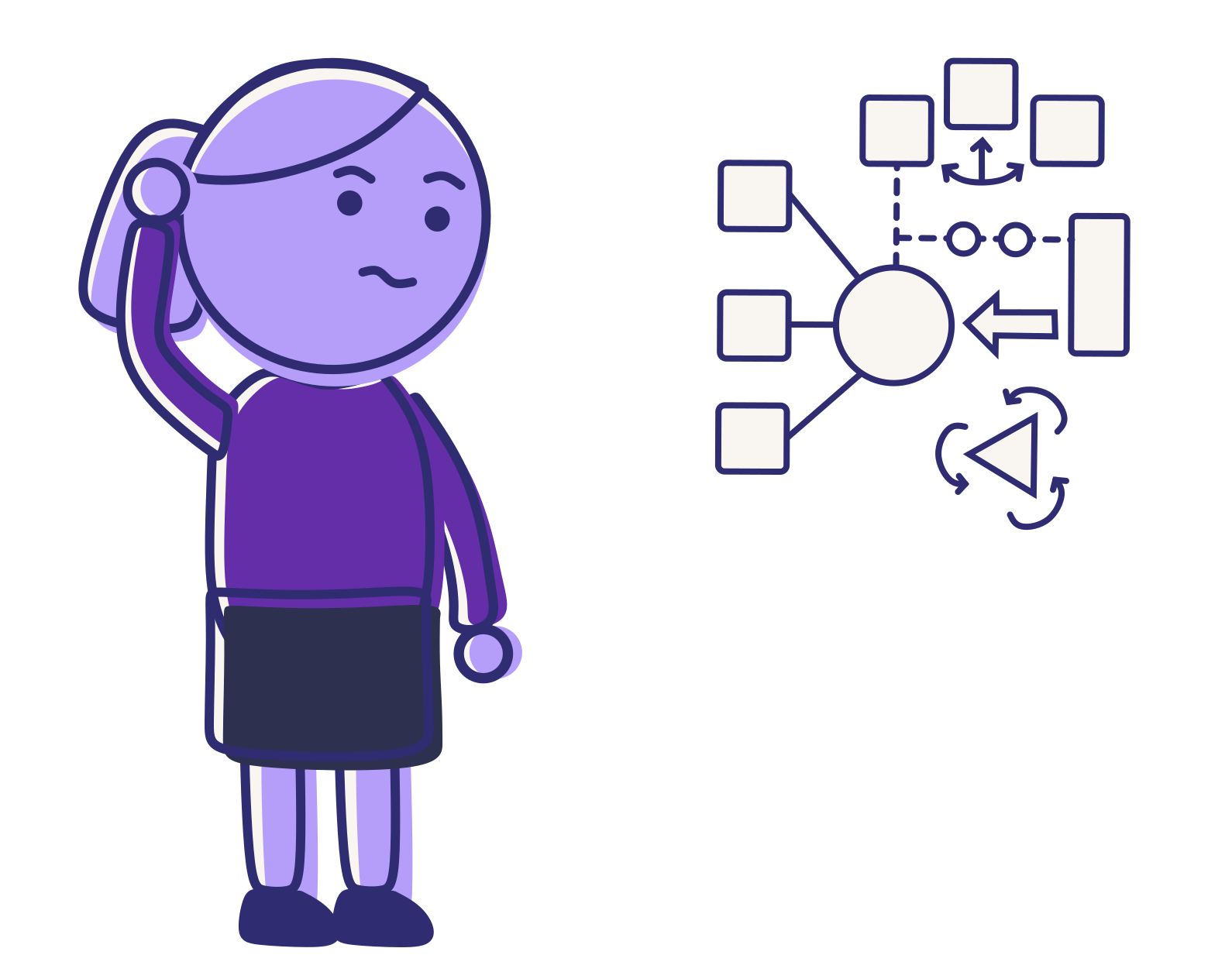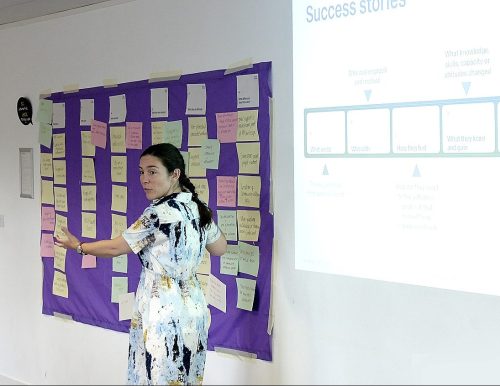A theory of change can transform the way you understand, implement and evaluate how your work makes a difference to the people and communities you care about.

But there is a lot of mystique around what a theory of change is and how to use them. We break this down, using plain language and working in a way that balances simplicity and complexity so that you can make progress.
If you are interested in creating, adapting or applying a theory of change to any kind of project, programme, initiative or strategy, we can help.
At Matter of Focus we see theories of change as the cornerstone of understanding impact and outcomes, of tracking progress and telling a compelling story of if and how your work makes a difference.
They can also be a useful way of ensuring everyone is ready for a new change process, or to iron out partnership plans.
-
Plan for the difference you want to make.
-
Clearly link your activities to the outcomes and impacts you care about.
-
Be clear to staff, stakeholders and funders how your work makes a difference to people and communities.
-
Get everyone on the same page about what is most important about your work.
-
Provide a framework for reflection, learning, evaluation and reporting.
Watch our webinar to explore the approach in more depth
We bring clarity and understanding
All of our consultant team are trained and experienced in theory of change work and bring insights and experience from working through similar issues with lots of clients of different sizes and scope.
We are experts in facilitating rich discussion to bring theories of change to life and ensure that everyone agrees and understands how change happens. We help you see things clearly and avoid getting caught up in detail.
Our simple framework brings this process to life in plain language that is inclusive but also robust.

The consultancy support we offer
Context workshops
We help you examine and create a shared understanding of the wider factors beyond your control that influence the same change and are likely to help and hinder your work. Such contextual factors include relational and individual components as well as material and societal drivers, including norms and predominant values.
Taking time to think and talk about context will help you:
- identify key risks to your initiative or work
- think through how risks can be mitigated and build on opportunities to improve or strengthen your initiative
- establish reasonable expectations about what an initiative might achieve given the time and resources available and contextual opportunities and limitations.
To help you understand the context of your work, we use an adapted version of the evidence-based “ISM Framework” created by the Scottish Government.
‘Success story’ sessions
We support your team and stakeholders to share ways they have intervened in the system that seem to work – this can help to build up an understanding of the main change mechanisms that look promising for the work and forms the basis of the outcome mapping stage.
Outcome mapping workshops, meetings and presentations
Outcome mapping is fully a participatory process to understand and build a theory of change: linking activities to the change that you seek.
These sessions can include a wide range of stakeholders who can bring a perspective on the system and the change needed, or we can coordinate a round of consultation to ensure important perspectives are included.
The resulting outcome maps form the basis for assessment plans.
Assessment plans
Working together, we think about how change will be monitored and what combination of reflection, feedback and data is needed to understand change in order to learn, improve and keep the programme on track.
Software that holds it all together
OutNav is our secure, cloud-based software that provides a single place to hold your outcome maps and assessment plans, bringing together your data and evidence for ongoing learning, monitoring and improvement, with clear and professional reporting functions. Explore OutNav→